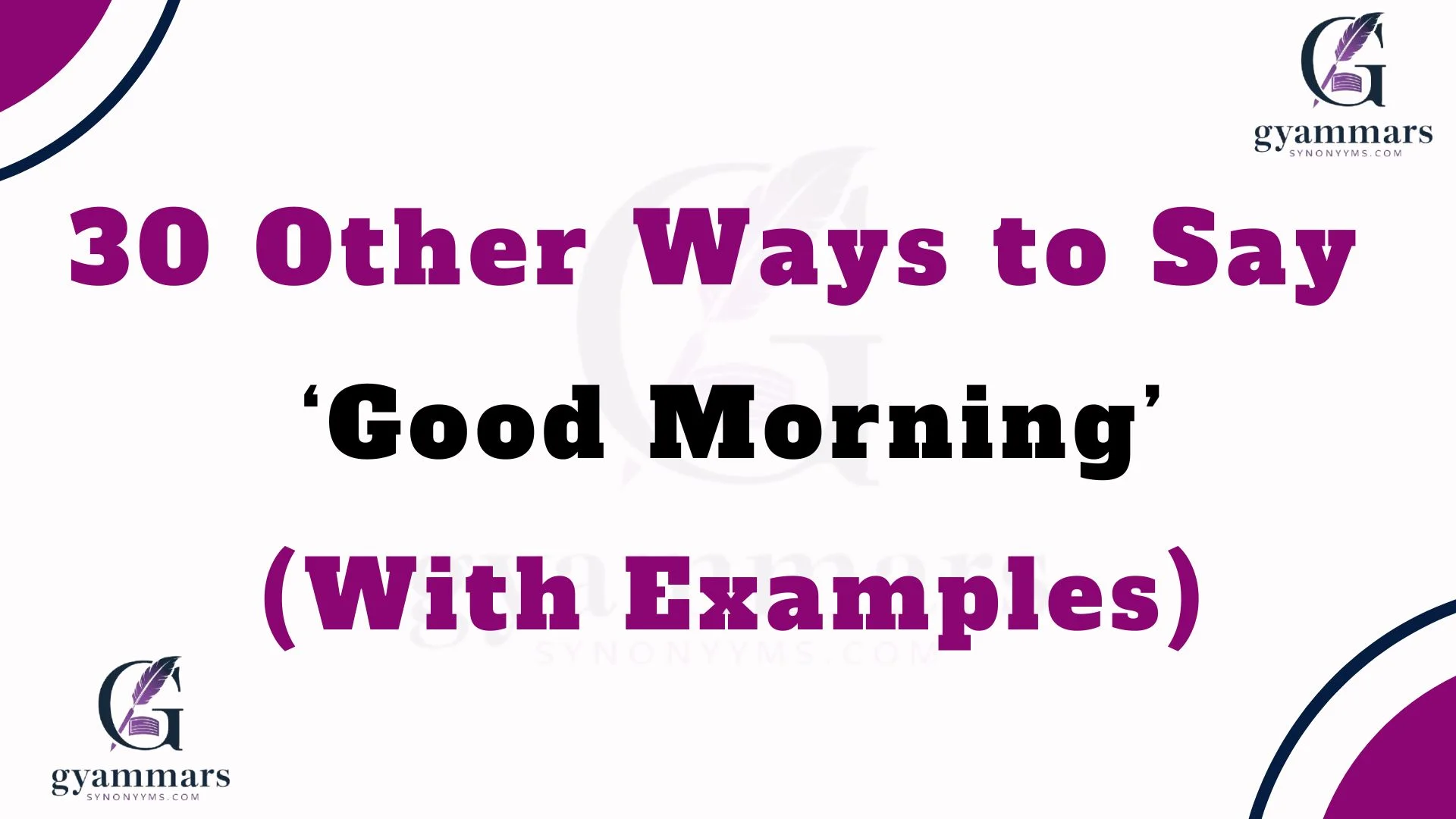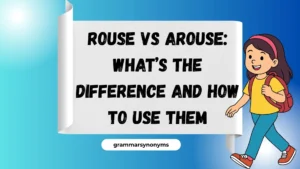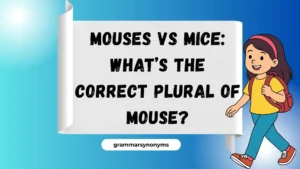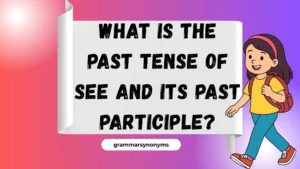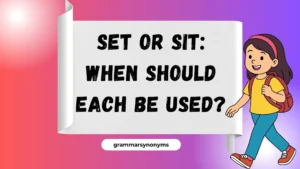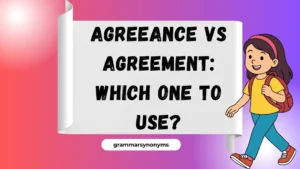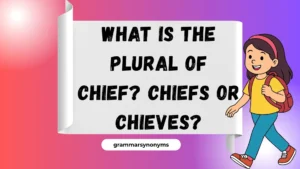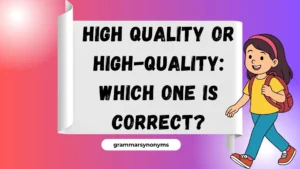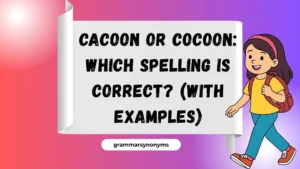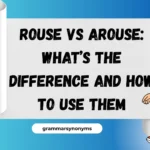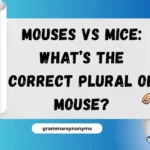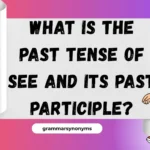Finding the right words to start the day can set the tone for meaningful interactions. While saying “Good Morning” is perfectly polite and common, there are times when you may want to add more warmth, personality, or professionalism to your greeting. Using different phrases can help you connect better with colleagues, friends, or loved ones, making your words feel more personal and genuine.
In this guide, we’ll explore 30 thoughtful alternatives to saying “Good Morning”—each with definitions, examples, and best-use cases—so you can start conversations with kindness, care, and confidence.
What Does “Good Morning” Mean?
At its core, “Good Morning” is a polite greeting used to acknowledge someone at the start of the day. It’s not just about time—it’s also about showing respect, friendliness, and positive energy when beginning an interaction.
Is It Professional/Polite to Say Good Morning?
Yes, absolutely. Saying “Good Morning” is both professional and polite. It’s widely accepted in workplaces, schools, and casual settings. However, depending on context, tone, and relationship, you might want to use a warmer, more personal variation or something more formal and polished in professional emails or meetings.
Pros and Cons of Saying Good Morning
Pros:
- Universally understood and polite
- Sets a positive tone
- Professional and neutral
Cons:
- May feel generic or overused
- Can sound routine without warmth
- Might not express deeper care or connection
Why You Need Alternatives to “Good Morning”
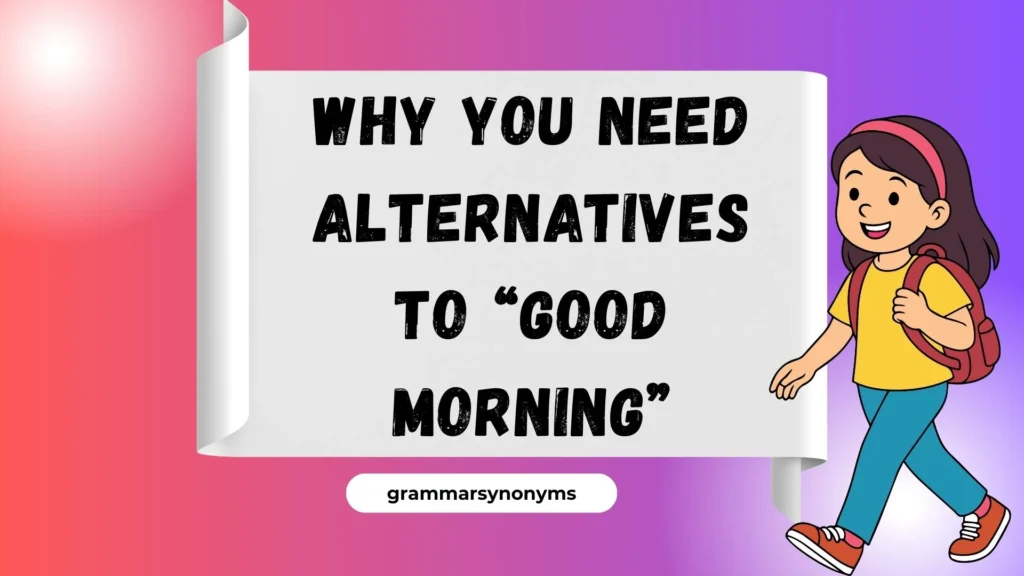
Using different greetings isn’t just about variety—it’s about better communication.
Here’s why alternatives matter:
- They sound more personal, not robotic
- They fit different moods and situations
- They improve professional writing, especially emails
- They show effort and emotional awareness
For example, a cheerful “Hope your day starts well” feels warmer than a plain “Good Morning” in a friendly message. Likewise, “Good morning, I hope this email finds you well” sounds more polished in formal settings.
Formal Alternatives
Use these in:
- Work emails
- Client communication
- Professional meetings
Examples include:
- Good morning, I hope you’re doing well
- Wishing you a productive morning
These sound respectful and polished without being stiff.
Informal Alternatives
Best for:
- Friends and family
- Text messages
- Casual conversations
Examples include:
- Morning!
- Rise and shine!
They feel relaxed, friendly, and natural.
Synonyms For ‘Good Morning’
- Morning!
- Rise and Shine!
- Top of the Morning to You
- Wishing You a Bright Morning
- Hope You Slept Well
- Hello Sunshine
- Good Day Ahead!
- Greetings of the Day
- Lovely Morning to You
- A Fresh Start to the Day
- Wishing You a Wonderful Morning
- Bright Morning!
- Wishing You a Peaceful Morning
- Morning Blessings
- Ready for a Great Day?
- May Your Morning Be Full of Joy
- A Cheerful Morning to You
- Hope Your Morning’s Off to a Great Start
- May Your Morning Be Bright
- Morning Vibes!
- A Happy Morning to You
- Fresh Morning Wishes
- Here’s to a Great Morning
- May Your Day Begin Brightly
- Have a Productive Morning
- Morning Greetings
- May the Morning Treat You Well
- Good Morning, Beautiful/Handsome
- Another Beautiful Day Awaits
- Let’s Make Today Amazing
1. Morning!
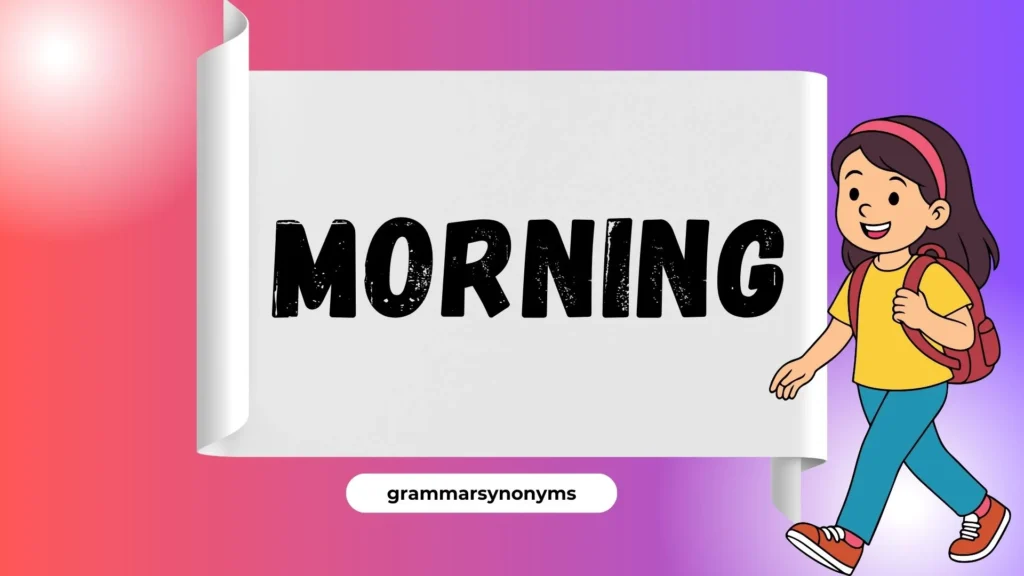
Definition: A shortened, casual version of “Good Morning.”
Detailed Explanation: Often used among friends or colleagues for a quick, easy greeting.
Scenario Example: “Morning! Hope you had a restful night.”
Best Use: Casual conversations, texts, or workplace chats.
Tone: Friendly, informal.
Additional Notes: Works well for a lighthearted start without being too formal.
2. Rise and Shine!
Definition: A cheerful way to encourage someone to start their day.
Detailed Explanation: Conveys energy and positivity, often used with kids, family, or close friends.
Scenario Example: “Rise and shine! It’s a beautiful day ahead.”
Best Use: Personal conversations, especially at home.
Tone: Playful, uplifting.
Additional Notes: Best avoided in professional settings.
3. Top of the Morning to You
Definition: A traditional, slightly old-fashioned Irish greeting.
Detailed Explanation: Rarely used today, but still charming and unique.
Scenario Example: “Top of the morning to you! Ready for the big day?”
Best Use: Casual or lighthearted situations.
Tone: Cheerful, whimsical.
Additional Notes: Works as a playful alternative but can feel outdated.
4. Wishing You a Bright Morning
Definition: A thoughtful, kind greeting that emphasizes positivity.
Detailed Explanation: Goes beyond acknowledgment and adds a warm wish.
Scenario Example: “Wishing you a bright morning and a successful day ahead.”
Best Use: Messages, emails, or texts.
Tone: Warm, encouraging.
Additional Notes: Good for semi-formal settings.
5. Hope You Slept Well

Definition: A considerate way to greet someone by caring about their rest.
Detailed Explanation: Shows genuine interest in someone’s well-being.
Scenario Example: “Good morning! Hope you slept well and feel refreshed.”
Best Use: Friends, partners, family.
Tone: Caring, intimate.
Additional Notes: Avoid in professional contexts unless appropriate.
6. Hello Sunshine
Definition: A playful and affectionate greeting.
Detailed Explanation: Often used to brighten someone’s day, especially if they’re close.
Scenario Example: “Hello sunshine! How’s your morning going?”
Best Use: Romantic partners, family, or close friends.
Tone: Warm, playful.
Additional Notes: Too casual for workplace use.
7. Good Day Ahead!
Definition: A positive wish tied to the morning greeting.
Detailed Explanation: Encourages optimism for the upcoming day.
Scenario Example: “Good day ahead! You’ve got this.”
Best Use: Professional emails or morning notes.
Tone: Neutral, positive.
Additional Notes: Appropriate for both formal and casual settings.
8. Greetings of the Day
Definition: A formal alternative to “Good Morning.”
Detailed Explanation: Often used in written communication, especially business.
Scenario Example: “Greetings of the day! Please find attached the report.”
Best Use: Professional settings.
Tone: Formal, polite.
Additional Notes: Works well in corporate or client communication.
9. Lovely Morning to You
Definition: A warm and caring wish for a pleasant morning.
Detailed Explanation: Adds charm and kindness to a greeting.
Scenario Example: “Lovely morning to you! Hope you enjoy your coffee today.”
Best Use: Friendly chats, texts, or casual work settings.
Tone: Gentle, kind.
Additional Notes: May sound overly personal in strict business settings.
10. A Fresh Start to the Day
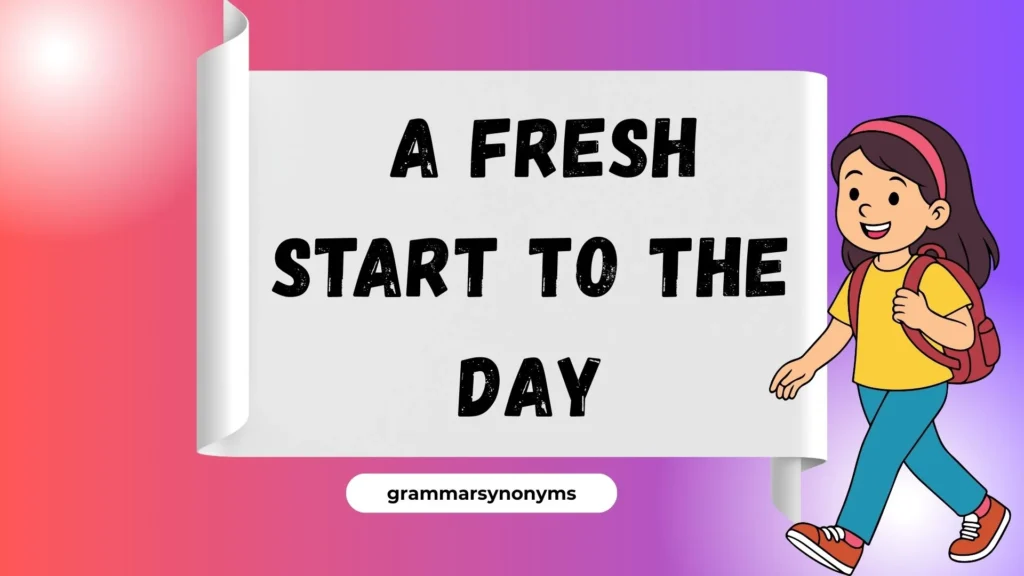
Definition: Encourages the idea of new beginnings.
Detailed Explanation: Ideal for motivating someone to embrace the day.
Scenario Example: “Here’s to a fresh start to the day—make it amazing!”
Best Use: Motivational contexts, morning notes.
Tone: Inspiring, encouraging.
Additional Notes: Great for both personal and semi-professional use.
11. Wishing You a Wonderful Morning
Definition: A caring and warm greeting.
Detailed Explanation: Goes beyond a simple hello and expresses genuine goodwill.
Scenario Example: “Wishing you a wonderful morning filled with peace and positivity.”
Best Use: Personal or semi-professional messages.
Tone: Thoughtful, kind.
Additional Notes: Works well in text messages or emails.
12. Bright Morning!
Definition: A short, cheerful variation.
Detailed Explanation: Ideal for uplifting someone’s mood without being too wordy.
Scenario Example: “Bright morning! Ready to tackle today?”
Best Use: Casual chats, greetings among peers.
Tone: Cheerful, light.
Additional Notes: Avoid in very formal communication.
13. Wishing You a Peaceful Morning
Definition: A calm, soothing greeting.
Detailed Explanation: Focuses on sending serenity and positive energy.
Scenario Example: “Wishing you a peaceful morning and a stress-free day.”
Best Use: Friends, loved ones, or reflective notes.
Tone: Gentle, caring.
Additional Notes: Good for comforting conversations.
14. Morning Blessings
Definition: A greeting that adds a spiritual or thoughtful touch.
Detailed Explanation: Perfect for those who like including faith, gratitude, or positivity.
Scenario Example: “Morning blessings! May your day be full of joy.”
Best Use: Spiritual or close personal connections.
Tone: Warm, uplifting.
Additional Notes: Avoid in very professional contexts.
15. Ready for a Great Day?
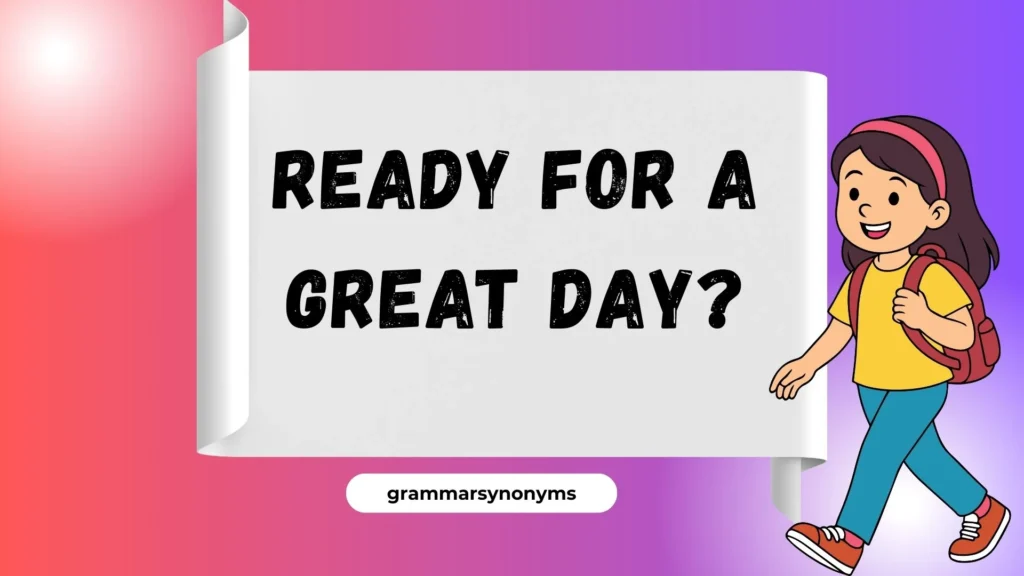
Definition: A motivational greeting that doubles as encouragement.
Detailed Explanation: Engages the listener with optimism and anticipation.
Scenario Example: “Good morning! Ready for a great day ahead?”
Best Use: Friends, coworkers, casual team meetings.
Tone: Energetic, inspiring.
Additional Notes: Not ideal for formal business communication.
16. May Your Morning Be Full of Joy
Definition: A heartfelt, warm expression.
Detailed Explanation: Personalizes the greeting by wishing happiness for the day.
Scenario Example: “May your morning be full of joy and laughter.”
Best Use: Family, friends, texts, or cards.
Tone: Caring, affectionate.
Additional Notes: Too personal for formal emails.
17. A Cheerful Morning to You
Definition: A positive and slightly formal greeting.
Detailed Explanation: Professional yet not stiff, this greeting works in balanced contexts.
Scenario Example: “A cheerful morning to you and the team.”
Best Use: Workplace chats, semi-formal emails.
Tone: Polite, upbeat.
Additional Notes: Safe for both casual and semi-professional use.
18. Hope Your Morning’s Off to a Great Start
Definition: A thoughtful, modern way to greet someone.
Detailed Explanation: Adds care and energy by focusing on how someone’s day has begun.
Scenario Example: “Hope your morning’s off to a great start, Sarah!”
Best Use: Workplace greetings, casual emails, friendly texts.
Tone: Warm, polite.
Additional Notes: A versatile option.
19. May Your Morning Be Bright
Definition: A poetic and kind expression.
Detailed Explanation: Emphasizes positivity and a good start to the day.
Scenario Example: “May your morning be bright and your day successful.”
Best Use: Personal greetings, motivational notes.
Tone: Encouraging, gentle.
Additional Notes: Too flowery for business communication.
20. Morning Vibes!
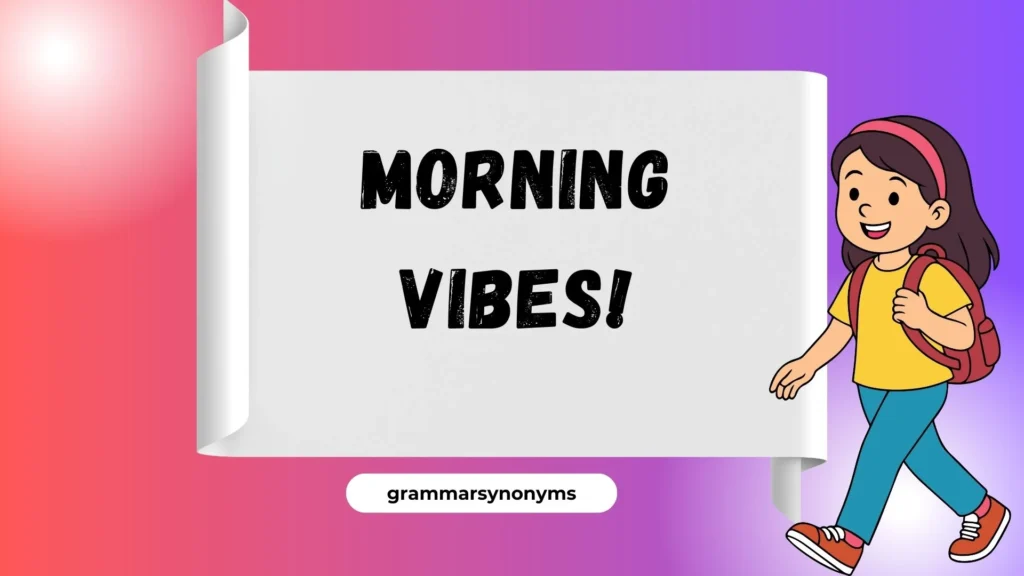
Definition: A modern, casual greeting.
Detailed Explanation: Trendy, especially popular in digital messages and social media.
Scenario Example: “Morning vibes! Sending positivity your way.”
Best Use: Friends, online chats, social posts.
Tone: Energetic, youthful.
Additional Notes: Avoid in professional settings.
21. A Happy Morning to You
Definition: A warm wish for joy and happiness.
Detailed Explanation: Combines friendliness with kindness, suitable for many contexts.
Scenario Example: “A happy morning to you and your family.”
Best Use: Semi-formal notes, personal greetings.
Tone: Polite, cheerful.
Additional Notes: Works for friendly professional exchanges too.
22. Fresh Morning Wishes
Definition: A unique twist with freshness and renewal.
Detailed Explanation: Implies positivity, new energy, and beginnings.
Scenario Example: “Fresh morning wishes for a productive day ahead!”
Best Use: Motivational contexts, workplace emails.
Tone: Polite, positive.
Additional Notes: Balanced for both professional and casual use.
23. Here’s to a Great Morning
Definition: A casual and motivating phrase.
Detailed Explanation: Acknowledges the day with encouragement and optimism.
Scenario Example: “Here’s to a great morning and an even better day!”
Best Use: Meetings, team chats, friends.
Tone: Supportive, upbeat.
Additional Notes: Great for team leaders or colleagues.
24. May Your Day Begin Brightly
Definition: A poetic, thoughtful variation.
Detailed Explanation: Evokes positivity and charm with gentle wording.
Scenario Example: “May your day begin brightly and bring good things your way.”
Best Use: Romantic or close personal greetings.
Tone: Gentle, affectionate.
Additional Notes: Avoid in strict business settings.
Also Read This : 30 Other Ways to Say “Have a Nice Day” (With Examples)
25. Have a Productive Morning
Definition: A professional and supportive greeting.
Detailed Explanation: Encourages focus and productivity.
Scenario Example: “Have a productive morning, team—we’ve got lots to accomplish.”
Best Use: Workplace chats, formal emails.
Tone: Encouraging, professional.
Additional Notes: Ideal for business use.
26. Morning Greetings
Definition: A neutral, polite variation.
Detailed Explanation: Useful when addressing groups or formal contexts.
Scenario Example: “Morning greetings to everyone joining the call today.”
Best Use: Meetings, emails, group messages.
Tone: Neutral, formal.
Additional Notes: Excellent for collective greetings.
27. May the Morning Treat You Well
Definition: A kind and thoughtful greeting.
Detailed Explanation: Puts a caring spin on the usual good morning.
Scenario Example: “May the morning treat you well and bring you success.”
Best Use: Friends, semi-professional contexts.
Tone: Gentle, encouraging.
Additional Notes: Warm yet professional enough for colleagues.
28. Good Morning, Beautiful/Handsome
Definition: A romantic or intimate greeting.
Detailed Explanation: Adds affection and closeness to a standard greeting.
Scenario Example: “Good morning, beautiful—hope your day starts well.”
Best Use: Romantic partners.
Tone: Loving, intimate.
Additional Notes: Not suitable for professional use.
29. Another Beautiful Day Awaits
Definition: A motivational and poetic greeting.
Detailed Explanation: Encourages optimism and appreciation for the day.
Scenario Example: “Another beautiful day awaits—let’s make the most of it!”
Best Use: Motivational speeches, friends, or journaling.
Tone: Inspirational, positive.
Additional Notes: Works best in personal and casual settings.
30. Let’s Make Today Amazing
Definition: A collaborative and motivating greeting.
Detailed Explanation: Invites others to approach the day with enthusiasm and teamwork.
Scenario Example: “Let’s make today amazing, team—good morning!”
Best Use: Teams, groups, family.
Tone: Motivational, energetic.
Additional Notes: Ideal for leadership or group inspiration.
Conclusion
While “Good Morning” is always a safe and polite choice, using thoughtful alternatives can make your greetings feel more personal, warm, and meaningful. Whether you’re talking to a colleague, a close friend, or a loved one, adjusting your greeting helps set the right tone—be it professional, playful, encouraging, or affectionate.
Starting the day with the right words is more than a greeting—it’s a way to show care, spread positivity, and make connections stronger.

“Emma Brooke at Grammar Synonyms is your trusted source for mastering the art of language. Whether you’re looking for the perfect synonym, refining your grammar, or searching for that one ideal phrase, we’ve got you covered. With a wealth of tools and resources, Emma Brooke brings you creative solutions for all your writing needs, making sure your words always hit the mark. Unlock a world of language possibilities and elevate your writing with ease.”
